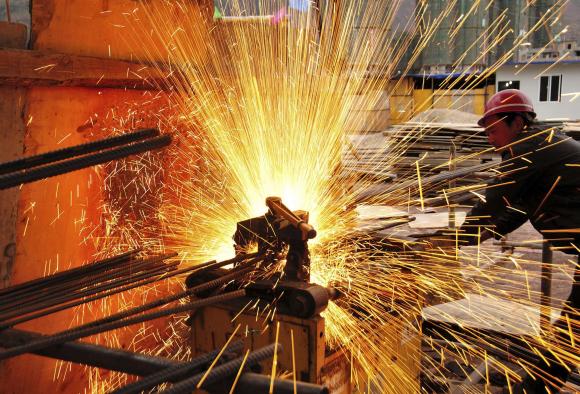 |
|
A worker welds at a construction site in Yiliang, Yunnan province, February 28, 2015.[Photo/Agencies] |
BEIJING - The Caixin General China Manufacturing Purchasing Managers' Index (PMI), an indicator of manufacturing activity, moved up to 48.3 in October, the highest level since June this year, a private survey showed Monday.
The reading was higher than 47.2 in September after months of decline, though it remained in contraction zone, according to the survey conducted by financial information service provider Markit and sponsored by Caixin Media Co. Ltd.
A reading above 50 indicates expansion, while a reading below 50 represents contraction.
"The manufacturing industry's weakening has slowed, showing previous stimulative policies have started to take effect," said He Fan, chief economist at Caixin Insight Group.
Chinese authorities have reduced interest rates, cut taxes and fees and ramped up fiscal spending since late last year to support economic growth sapped by tepid trade and investment.
Despite the rise in PMI, the Chinese economy continues to face the pressure of weak demand and needs to guard against deflationary risks resulting from falling commodity prices, He said.
In October, the sub-index for new export orders in the manufacturing sector returned to expansion zone, propping up the total new business orders, indicating improvement in external demand, according to the survey.
Employment in October contracted at the slowest pace in three months, while cheaper raw materials continued to push down the average cost for manufacturers and led to lower selling prices for their products.
China's official manufacturing PMI came in at 49.8 in October, unchanged from September, according to data released by the National Bureau of Statistics (NBS) and the China Federation of Logistics and Purchasing.
"Although stuttering property construction and overcapacity have likely led to dwindling organic momentum of the economy, it seems to have been largely counterbalanced by intensified policy efforts, helping the real economy tentatively bottom out," said UBS economist Wang Tao in a research note.
